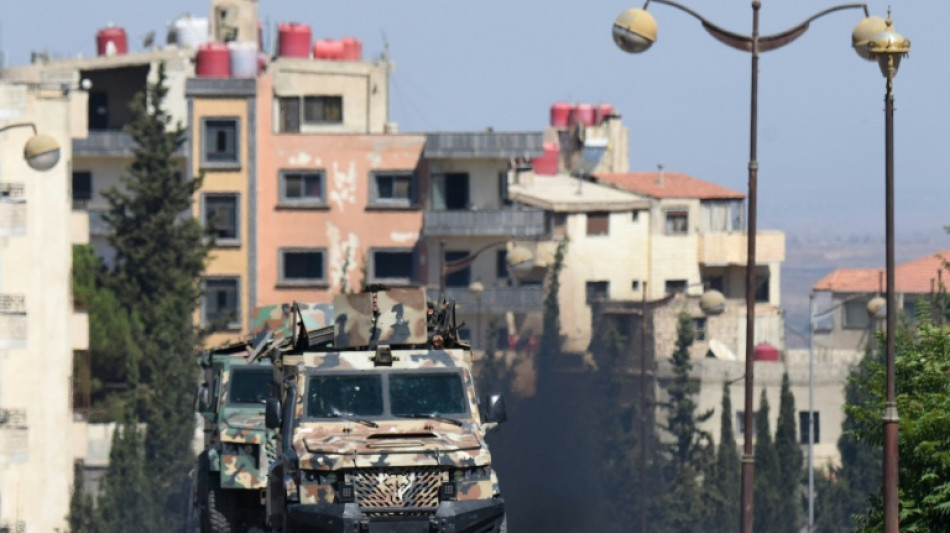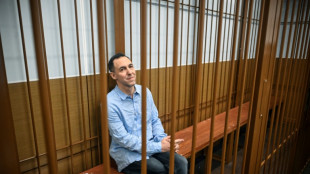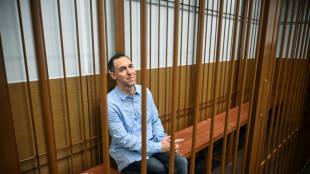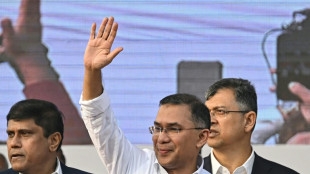

Syria says local factions to secure violence-hit Sweida
The Syrian government announced Thursday that local leaders would assume control over security in the city of Sweida in an attempt to end violence that has claimed hundreds of lives and prompted Israel's military intervention in support of the Druze minority.
Syrian forces had deployed to Sweida with the stated aim of overseeing a truce, following days of deadly clashes between Druze fighters and local Bedouin tribes that a war monitor said left more than 350 people dead.
But witnesses said government forces had joined the Bedouin in attacking Druze fighters and civilians.
Israel responded by carrying out strikes on Syrian forces, including its army headquarters in Damascus, and said it would intensify its attacks if they did not withdraw from the south.
Syria said Wednesday its army was withdrawing from Sweida and the United States -- a close ally of Israel that has been trying to reboot its relationship with Syria -- said an agreement had been reached to restore calm in the area, urging "all parties to deliver on the commitments they have made".
Syrian interim President Ahmed al-Sharaa said in a televised address Thursday that "responsibility" for security in Sweida would be handed to religious elders and some local factions "based on the supreme national interest".
"We are keen on holding accountable those who transgressed and abused our Druze people, as they are under the protection and responsibility of the state," he said.
- 'Unknown fate' -
Before the government intervention, Druze areas were mainly controlled by fighters from the minority.
Addressing the Druze, Sharaa said the community was "a fundamental part of the fabric of this nation... protecting your rights and freedom is one of our priorities".
Syria's Islamist authorities, who toppled longtime ruler Bashar al-Assad in December, have had strained relations with Syria's religious and ethnic minorities, and have been accused of not doing enough to protect them.
March saw massacres of more than 1,700 mostly Alawite civilians in their coastal heartland, with government affiliated groups blamed for most of the killings.
Government forces also battled Druze fighters in Sweida province and near Damascus in April and May, leaving more than 100 people dead.
Sharaa said "outlaw groups", whose leaders "rejected dialogue for many months" had committed "crimes against civilians" in recent days.
He said the deployment of defence and interior ministry forces had "succeeded in returning stability" despite the intervention of Israel, which has bombed the country's south and the capital Damascus.
Israel, which has its own Druze community, has presented itself as a defender of the Syrian minority, although some analysts say that is a pretext for pursuing its own military goal of keeping Syrian government forces as far from their shared frontier as possible.
US Secretary of State Marco Rubio had expressed concern on Wednesday about the Israeli bombings, adding "we want it to stop".
Rubio later announced on X that all sides had "agreed on specific steps that will bring this troubling and horrifying situation to an end".
"This will require all parties to deliver on the commitments they have made and this is what we fully expect them to do," he wrote, without elaborating on the nature of the agreement.
Sharaa hailed US, Arab and Turkish mediation efforts for preventing the conflict from spiralling.
"The Israeli entity resorted to a wide-scale targeting of civilian and government facilities", he said, adding it would have sparked "large-scale escalation, except for the effective intervention of American, Arab, and Turkish mediation, which saved the region from an unknown fate".
He did not specify which Arab countries had mediated.
Turkey is a key backer of Syria's new authorities, while Arab states including Qatar and Saudi Arabia have also shown support for the new government.
H.Samuelsson--StDgbl






